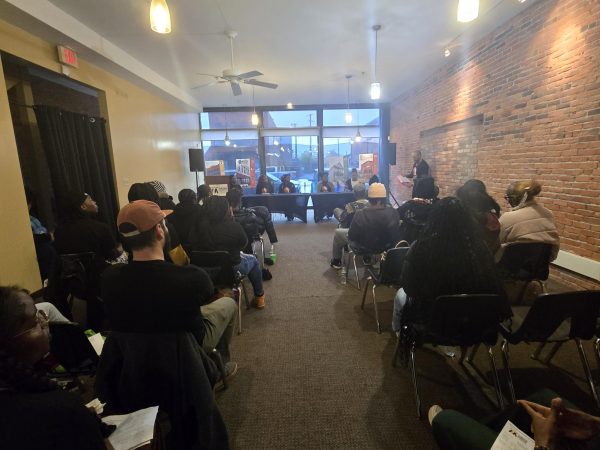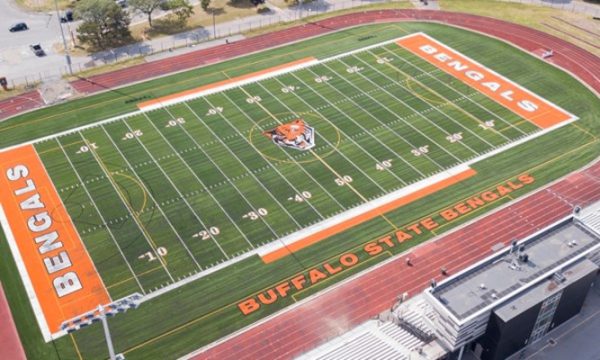ResNet increases campus bandwidth, students rejoice
Last semester, students were informed that SUNY Buffalo State was looking into purchasing more bandwidth in the dorms to create a faster Wi-Fi connection around campus.
Over winter break the Residence Life and Housing Office and Computing Technology Services succeeded in increasing ResNet bandwidth, despite Internet issues that have persisted through the first five weeks of the semester.
ResNet is the Internet access available to students who live in the dorms with Wi-Fi access.
The decision to increase bandwidth was the result of student feedback.
According to Timothy Ecklund, associate vice president of student affairs, the bandwidth used to be 125 to 200 Mbps. It has been increased to 500 Mbps.
Aside from computers and laptops, tablets, phones, e-book readers and other devices are all capable of connecting to the Internet wirelessly.
When all of these electronics connect with the Wi-Fi, it becomes slower since it’s being used by more platforms.
“We have experienced a lot more Internet traffic this year and so we increased the Internet bandwidth to improve performance,” said Don Erwin, chief information officer at Buffalo State.
At the beginning of the spring semester, the Internet was supposed to be improved, but some technical issues delayed the faster Internet.
Ecklund said that the complication affected all of the buildings since the bandwidth is shared throughout all of the Residence Halls.
“There was a technical problem related to the upgrade and it was complicated by a fiber optic cable failure with one of our Internet providers that took a while to repair,” Ecklund said.
In February, resident students received an email from ResNet saying that connection problems were the result of several installed routers being found in student dorms.
The email stated that by having these extra routers installed, the ability to login and connect to the network slows down and creates problems.
It also said that having a private router is a violation of the ResNet policy. If they are found, they will be taken away, Ecklund said.
According to Ecklund, there are a few problems that arise with outside Internet routers being installed in the dorm rooms.
He said that as a result of having additional wireless routers installed, there is interference between ResNet and campus Wi-Fi. It causes everyone’s Internet to slow down.
Security issues and faulty connections in the building also add to the possibility of everyone losing their Wi-Fi access.
Tina Reyes, a senior in business administration, has returned to Buffalo State after previously studying abroad. She said that she has seen the slight improvements that have been made to the Wi-Fi connection in the dorms.
“I haven’t had any problems with it since I’ve been back,” Reyes said.
A new dorm plan is expected be implemented for the fall semester will increase the Internet access throughout all dorm buildings on campus.
Erwin said that the plans to incorporate better wireless access in all of the dorms will help not only residents, but anyone on campus using the Internet.
“The new dorm Internet project will separate the dorm Internet traffic from the rest of the campus so performance should be improved everywhere on campus,” Erwin said. “All dorm rooms will have wireless access as part of that project.”
Internet connection for gaming consoles has also increased. GameOnly shares the same bandwidth as ResNet.
According to Erwin, residence life, campus administration and computing and technology services have been working together in order to improve the Internet access for students and faculty around campus.
He said that the overall campus bandwidth has increased from 500 Mb to 700 Mb and is expected to be up to 1 Gb for the fall semester.
Email: coppola.record@live.com
Twitter: @lcoppola92






